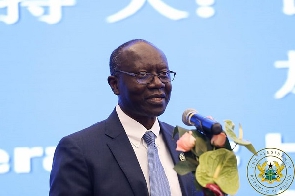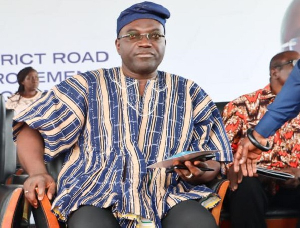Finance Minister-designate, Ken Ofori-Atta, has stated that the idea behind the introduction of new taxes and the changes being made in the existing ones is to ensure that a collective effort is adopted in fighting the impact of the COVID-19 pandemic.
He said the government carefully crafted the new taxes to be able to capture every sector of the economy to contribute some revenue that will be used to revitalize the economy.
“The whole issue of the ‘won ya wohia’ budget is really to rally all of us around as a country, to say what are we all going to be doing to make sure that COVID does not sink us. While at it, the battle-cry for transformation is also not forgotten because we are always trading growth and consolidation; but we must grow and we must do it deliberately, and it is our responsibility as a people to do that. I think that is what the president is looking at.”
Speaking at a post-budget forum organized by PricewaterhouseCoopers (PwC), Mr Ofori-Atta indicated that the budget was spearheaded on the principle of shared responsibility, pushing everyone to contribute a little to economic resuscitation.
“We have sort of anchored this around debt sustainability, particularly looking at the medium-term deficit getting back into 5 per cent and ratcheting it up in terms of revenue in a way that impacts everybody but everybody contributes to that; and that has been the structure in which we chose to move.”
Presenting the 2021 Budget statement the caretaker Minister of Finance Osei Kyei-Mensah-Bonsu noted that NHIS, VAT flat rate increased by 1 per cent each, and the government is introducing new sanitation and pollution levy. He also said fuel prices will go up by some 5.7 per cent, banks will be paying 5 per cent extra income tax, while there is a revision on road tolls and a new gaming policy.
“We do have issues of sanitation, the debt fund for energy and other issues that need to be tackled. As a result, petroleum taxes are supposed to contribute to that. Then we have the 1 per cent on VAT, which essentially is looking at making sure we are able to pay for the vaccines and get our people working so that we don’t have a lockdown. Also, it will help with Agenda 111 so that the infrastructure for our health care will be a lot more robust,” he said.
Mr Ofori-Atta said the government have seen the financial sector’s robustness over the past four years and therefore roping them in on their part is a shared burden philosophy and that “this is being done so that, at the end of the day, we all as a people recognize the enormity of the problem we have”.
“The financial sector, in like manner, we watched as our people broke the rules; but these associations should be strong enough and have the moral authority to begin saying ‘this will affect our bottom line’ so that we work at dealing with it.” He added.
Business News of Wednesday, 17 March 2021
Source: www.ghanaweb.com

















